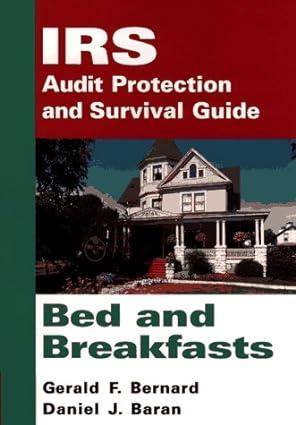Answered step by step
Verified Expert Solution
Question
1 Approved Answer
Forecasting with the Parsimonious Method and Estimating Share Value Using the DCF Model Following are income statements and balance sheets for Cisco Systems. Cisco Systems
Forecasting with the Parsimonious Method and Estimating Share Value Using the DCF Model Following are income statements and balance sheets for Cisco Systems. Cisco Systems Consolidated Statements of Income Years Ended December ($ millions) July 27, 2019 July 28, 2018 Revenue Product $39,005 $36,709 Service 12,899 12,621 Total revenue 51,904 49,330 Cost of sales Product 14,863 14,427 Service 4,375 4,297 Total cost of sales 19,238 18,724 Gross margin 32,666 30,606 Operating expenses Research and development 6,577 6,332 Sales and marketing 9,571 9,242 General and administrative 1,827 2,144 Amortization of purchased intangible assets 150 221 Restructuring and other charges 322 358 Total operating expenses 18,447 18,297 Operating income 14,219 12,309 Interest income 1,308 1,508 Interest expense (859) (943) Other income (loss), net (97) 165 Interest and other income (loss), net 352 730 Income before provision for income taxes 14,571 13,039 Provision for income taxes 2,950 12,929 Net income $11,621 $110 Cisco Systems Inc. Consolidated Balance Sheets In millions, except par value July 27, 2019 July 28, 2018 Assets Current assets Cash and cash equivalents $11,750 $8,934 Investments 21,663 37,614 Accounts receivable, net of allowance for doubtful accounts 5,491 5,554 Inventories 1,383 1,846 Financing receivables, net 5,095 4,949 Other current assets 2,373 2,940 Total current assets 47,755 61,837 Property and equipment, net 2,789 3,006 Financing receivables, net 4,958 4,882 Goodwill 33,529 31,706 Purchased intangible assets, net 2,201 2,552 Deferred tax assets 4,065 3,219 Other assets 2,496 1,582 Total assets $97,793 $108,784 Liabilities and equity Current liabilities Short-term debt $10,191 $5,238 Accounts payable 2,059 1,904 Income taxes payable 1,149 1,004 Accrued compensation 3,221 2,986 Deferred revenue 10,668 11,490 Other current liabilities 4,424 4,413 Total current liabilities 31,712 27,035 Long-term debt 14,475 20,331 Income taxes payable 8,927 8,585 Deferred revenue 7,799 8,195 Other long-term liabilities 1,309 1,434 Total liabilities 64,222 65,580 Equity: Cisco shareholders equity Preferred stock, no par value: 5 shares authorized; none issued and outstanding -- -- Common stock and additional paid-in capital, $0.001 par value: 20,000 shares authorized; 4,250 and 4,614 shares issued and outstanding at July 27, 2019, and July 28, 2018, respectively 40,266 42,820 (Accumulated deficit) Retained earnings (5,903) 1,233 Accumulated other comprehensive income (loss) (792) (849) Total Cisco shareholders' equity 33,571 43,204 Total equity 33,571 43,204 Total liabilities and equity $97,793 $108,784 (a) Compute net operating assets (NOA) for 2019. Hint: Treat Financing receivable as operating assets. NOA = $Answer (b) Compute net operating profit after tax (NOPAT) for 2019, assuming a federal and state statutory tax rate of 22%. Assume that all items on the 2019 income statement will persist.(Round your answer to the nearest whole number.) 2019 NOPAT = $Answer (c) Use the parsimonious forecast method, as shown in Analysis Insight box on page 13-4, to forecast Ciscos sales, NOPAT, and NOA for 2020 through 2023 and the terminal period using the following assumptions. Sales growth 20202023 5% Terminal growth 1% Net operating profit margin 2019 rate rounded to three decimal places Net operating asset turnover 2019 rate rounded to three decimal places CSCO Reported Forecast Horizon Terminal ($ millions) 2019 2020 Est. 2021 Est. 2022 Est. 2023 Est. Period Sales (rounded two decimal places) Sales (rounded nearest whole number) NOPAT (rounded nearest whole number)* NOA (rounded nearest whole number)* * Use sales rounded to nearest whole number for this calculation. (d) Estimate the value of a share of Cisco common stock using the discounted cash flow (DCF) model as of July 27, 2019; assume a discount rate (WACC) of 7.6%, common shares outstanding of 5,029 million, and net nonoperating obligations (NNO) of $(8,747) million (NNO is negative, which means that Cisco has net nonoperating investments) Instructions: Use your rounded answers for subsequent calculations. Round all answers to the nearest whole number, except for discount factors and stock price per share. Round discount factors to 5 decimal places. Round stock price per share to two decimal places. Use a negative sign with your NNO answer. CSCO Reported Forecast Horizon Terminal ($ millions) 2019 2020 Est. 2021 Est. 2022 Est. 2023 Est. Period DCF Model Increase in NOA FCFF (NOPAT - Increase in NOA) Discount factor Present value of horizon FCFF Cum present value of horizon FCFF Present value of terminal FCFF Total firm value NNO Firm equity value Shares outstanding (millions) Stock price per share (e) Cisco stock closed at $48.42 on September 5, 2019, the date the Form 10-K was filed with the SEC. How does your valuation estimate compare with this closing price? What do you believe are some reasons for the difference? What investment decision is suggested from your results? (Select all that apply) Answer Our stock price estimate is lower than the CSCO market price as of September 5, 2019, indicating that we believe the stock is overvalued. Answer Stock prices are a function of expected NOPAT and NOA, as well as the WACC discount rate. Answer Our lower stock price estimate may be due to more pessimistic forecasts or a higher discount rate compared to other investors' and analysts model assumptions. Answer Our higher stock price estimate may be due to more optimistic forecasts or a lower discount rate compared to other investors' and analysts model assumptions. please give all the calculations
Step by Step Solution
There are 3 Steps involved in it
Step: 1

Get Instant Access to Expert-Tailored Solutions
See step-by-step solutions with expert insights and AI powered tools for academic success
Step: 2

Step: 3

Ace Your Homework with AI
Get the answers you need in no time with our AI-driven, step-by-step assistance
Get Started


